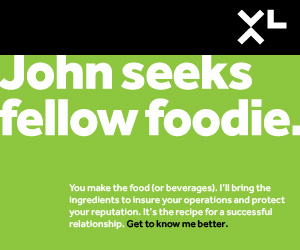Risk Scenario
Breaking Ben
Disclaimer: The events depicted in this scenario are fictitious. Any similarity to any corporation or person, living or dead, is merely coincidental.
Part One
Ben LeGrand yawned deeply, put down his reading glasses and pushed his chair away from his desk. The founder of Ben’s Best, a maker of organic cookies, breads and pastas, at 72 years of age, was feeling his years.

Ben reached into the open box of “Grand Galileos” his line of organic, whole-wheat fig bars, and snatched two of them from their compostable sleeves. The cookies and a fresh cup of coffee were his favorite afternoon snack.
Ben popped one of the fig bars into his mouth and sipped his coffee, enjoying the fine, sugary fig taste on his tongue. Still a kid at heart, he loved the crunch of the fig seeds between his teeth.
Looking out onto the manufacturing floor, Ben let his chest swell with pride, as he did every working day, at the billion dollar company he had built from the humble beginnings of a spring house on his Virginia farm.
Ben smiled. There on the factory floor was his daughter Julia in her orange hard hat and safety glasses, looking over one of the company’s production lines with a safety manager.
Ben was full of expectation, in addition to pride. Negotiations were almost complete to sell his entire Ben’s Best line, including the manufacturing facility and his highly lucrative contracts for producing private label products for other large brand food companies.
His phone ringing jarred Ben’s reverie. On the other end was Teague Ralston, Ben’s operations chief.
“Ben, it’s Teague,” Teague said in his direct, confident manner.
“Yes, Mr. Ralston, what can I do for you?” Ben said with mock deference, getting a chuckle from Teague.
“Hah! Ahhh, not too much. Listen, I want to run something by you. I’ve run into a supplier problem for chia seeds and I need to pick some up on the spot market.”
“I see no issues with the supplier,” Teague quickly added, anticipating, as he almost always did, a question from Ben.
“I know Soy Boy uses them and Robyn’s Fresh,” Teague continued, referring to two organic food manufacturers that he knew Ben was familiar with and respected as worthy competitors.
“That’s fine that they use them but what sort of premium are we looking at here?” Ben asked.
“We’re looking at about 10 percent more than usual but my opinion is that we don’t want to run short and end up having to give up shelf space. We use the chia seeds in our nut-free cookies as you know and in Ben’s Omega Bread and both of those are in competitive spaces. Heck, we’re talking end caps in Great Green’s in the mid-Atlantic and the Northwest,” Teague said.
“Gotcha Teague, gotcha. Yes, go ahead then.”
“Thanks, boss,” Teague said.
Ben hung up and did the mental calculations. In the micro-view, Teague was, of course, right. You didn’t want to lose shelf space on nut-free cookies. It seemed like this entire next generation of kids had a peanut allergy and their parents were on red alert about it.
Ben’s Omega Bread also had a host of omega-3-rich competitors to face in a variety of food categories. No room to give ground willingly there either.
This was not the time to make any moves that would dent top-line numbers. Not with the sale of the company just about closed. No way, no how; not right now.
***
Seven weeks later, Ben was driving back from the Chesapeake Bay marina where he had just docked his 44-foot teakwood-finished sailboat.
It was late afternoon and the local National Public Radio outlet had just broadcast a teaser about contaminated cookie deaths out West.
Ben had been turning over a new product idea as he sailed his boat and the idea was still brewing in his mind as he drove home. But at mention of the word “cookies” he turned up the volume on the radio as the news report came on.
“The Salt Lake City coroner’s report on the deaths, three children and one adult, concluded that all four of the deceased had suffered severe anaphylactic reactions from contaminated cookies. The source of the cookies and the contamination is still being investigated,” the NPR said.
But Ben soon tuned the report out. He was working on a new idea and was on the verge of selling his company. He had to focus on the matters at hand.
“Wouldn’t want to be the person who made those cookies, though,” Ben thought to himself as he turned the radio down and continued mulling over his latest brainchild.
Part Two
The next time Ben spoke to Teague Ralston was to fire him.
An investigation by the Food and Drug Administration in conjunction with state law enforcement in Utah, California and Virginia concluded that the contaminated cookies referred to in the NPR report had been produced by Ben’s Best.
Amplifying the damage was that the cookies contained the chia seeds the company had purchased on the spot market, which had been processed on machinery that had also processed peanuts.
Teague had found out about the cross-contamination two weeks before the deaths from a former colleague who worked at Robyn’s Fresh.
Ben was on a sailing trip when Teague got the information. Rather than play it absolutely safe, Teague, under marching orders from Ben to protect the top line “no matter what”, had gambled.
Teague reasoned, using data from a flawed ingredient traceability system, that there was a 95 percent chance that only one batch of nut-free cookies had been affected. He recalled that batch and didn’t recall the second. It was the second batch that stayed on shelves and resulted in the deaths.
Making the issue worse was that all the other manufacturers in this space had conducted a full recall when they found out about the cross-contamination issue.
A Salt Lake-based reporter added fuel to the fire by reporting that the contaminated chia seeds were not organic, although permitted to be used in a product labeled organic. The combination of a supposedly nut allergen-free product that caused deaths combined with the fact that the ingredient wasn’t organic to begin with, sent consumers and the aggrieved relatives of the deceased over the edge.
Mothers who strictly watch what their children eat took to Facebook and other social media sites to lash out in anger.
Ben logged onto one of these sites and saw things that made him cringe. One Facebook page, “Ben: ‘Le Grand’ Phony” features a photo of Ben looking smug behind the steering wheel of his sailboat, posted next to links of news stories about the contaminated cookie deaths.
Tears come to Ben’s eyes. To work as hard as he did, making what he believed in his heart were healthy products, good for people and good for the planet, had come to this! The frustration and the unfairness of the whole thing were enough to drive a man mad.
Ben had a corporate communications team, but as events unfolded, it became evident that the team was out-matched.
“The leadership and employee’s of Ben’s Best wish to express our sincerest condolences to the family and friends of those who lost their lives,” an e-mailed “Ben’s Best” press release began. “We here at Ben’s Best make every effort to insure the safety and wholesomeness of our products.”
The company posted a similar statement on its website. But the accompanying picture of Julia in her hard hat inspecting the production lines looked canned and was an inadequate image and message to quell the rage people were expressing on social media sites.
Hands down, The “Ben’s Best” corporate communications team had been caught flat-footed by the speed at which the social media attacks came on. The e-mailed press release and the statement on the website were outdated attempts to stem the tide of negative publicity that “Ben’s Best” was suddenly suffering from.
And the social media attacks were just gearing up. Posters on Facebook were calling for boycotts, not only of Ben’s Best cookies but his entire line, his pastas, his breads, everything. Social media attacks were also targeting retailers, demanding that all Ben’s Best products be removed and stores boycott their products. A Twitter hashtag, #bensbestkills, began trending strongly.
The “Ben’s Best” team simply did not have the tools to counter the assault. The company had a crisis response plan, but it had too many holes to be of practical use.
Tens of thousands of boxes of the company’s cookies were pulled off of the shelves and Ben’s large brand customers began cancelling orders for his breads and pastas. Meanwhile, other products he manufactured for them were recalled. The FDA has understandably made all products containing chia seeds used by Ben’s Best subject to a Class I recall.
Not only is the reputation of Ben’s Best at risk, so are those of his private label customers. Ben also knows a phone call from the potential buyers of his company is coming. He just doesn’t know when.
Part Three
At the Green Valley Country Club where he brings business associates to impress them, Ben sat at his usual table feeling like there was a spotlight of accusation on him. People at the club acted friendly toward him, but something didn’t feel right. He was on the outs, no doubt. Even the waiter was eyeing him with disdain.
Across from Ben over salads of blackened Atlantic Ocean blue fish on microgreens, was Paul Strickland. Paul was tan, handsome and incredibly fit-looking under his pin-striped blue custom suit.
Paul was the CEO of Green Knight Organics, the well-diversified organic food maker that was poised to be the chief player in the purchase of Ben’s Best.
Paul was maddeningly reserved and emotionally neutral at lunch. He knew he had Ben right where he wanted him and he was going to leverage the situation to the maximum.
“Given the…” Paul was saying as he methodically tore off a piece of bread.
“Given the extraordinary circumstances of the last two months, accurately valuing the company at this point is going to be….challenging, isn’t it?” And as Paul finished this question he looked up at Ben with piercingly unforgiving, pale blue eyes.
“Challenging,” Ben thought bitterly to himself as he played poker and delayed his answer to Paul.
Ben signaled for the waiter to bring the check. He had to get this lunch over as soon possible.
“Challenging isn’t the word for it,” he thought to himself as he drove away from lunch, down the winding road from the country club past the eighth green. He used to love this drive. Now he just wanted to be somewhere else. Anywhere else.
 Ben was kicking himself so much he was about to turn green from internal bruising. His insurance broker had been talking to him annually for the past six or seven years about product recall and product contamination coverage, but Ben had never imagined that the healthy products he made could be unhealthy for anyone, and he had passed on the opportunity.
Ben was kicking himself so much he was about to turn green from internal bruising. His insurance broker had been talking to him annually for the past six or seven years about product recall and product contamination coverage, but Ben had never imagined that the healthy products he made could be unhealthy for anyone, and he had passed on the opportunity.
Ben had been in the game a long time now, perhaps too long. He’d started his company in the 1970’s, and the cold hard facts were that certain risk elements had passed him by.
Not only was the company’s reputation in tatters but it was having basic operational issues. The sudden dismissal of Teague Ralston and the circumstances surrounding it had hamstrung the Ben’s Best procurement team. The vetting process for new sources of chia seeds and other ingredients had become so exhaustive that many of their cookies and breads were losers before the products even left the factory.
Once he understood the true nature of his spot-market supplier, Ben didn’t even try to file a contingent business interruption claim. Teague hadn’t done his due diligence. It had been painful, but firing him was the right thing.
The uninsured losses were starting to build to daunting heights. The cross-contaminated cookies were impaired, which was painfully obvious, but they weren’t damaged as such according to Ben’s liability carriers.
Depending on the consumer, they were perfectly fine to eat. So it’s doubtful whether Ben’s liability coverage is going to be triggered for losses sustained by the private label retailers that used his products for recall costs, loss of sales and brand damage. The uninsured exposure for Ben’s Best in this area is looking to be upwards of $3 million for recall expenses alone plus loss of profits and a huge drop in sales revenues.
Ben’s third-party brand owners are also facing massive uninsured losses due to loss of sales, recall expenses and loss of profit in lines where Ben’s Best was their sole supplier.
***
One afternoon Ben is sitting on the deck of his sailboat at the dock. He’s so down in the dumps he doesn’t even have the desire to set sail. Instead he fills another glass of white wine and watches the tourists go by.
Ben’s cell phone vibrates. He looks at the caller ID. His heart sinks further as he picks up the phone.
“Yes Harvey,” Ben says dejectedly. At the other end is Harvey Andrews, Ben’s longtime friend and attorney.
“My friend, my friend,” Harvey said.
“What is it now?” Ben can tell from Harvey’s tone that more bad news is about to drop.
“I just talked to Leon Fetters over at First Virginia National. It’s the opinion of the bank’s board of directors that you failed to adequately inform them of your supply-chain issues. They’re filing a lawsuit tomorrow in Richmond accusing you of misrepresentations in filing for the $5 million pre-sale line of credit you got from them.”
“Anything else Harvey?” Ben said as he realized he was spilling his wine on the teakwood deck of his boat.
“I think the best you can get for the company at this point is around $600 million, my friend,” Harvey said.
“It was worth a billion three months ago,” Ben said.
“I know Ben, I know,” Harvey said.
Just then a seagull flew by, making that seagull laughing sound.
Summary
Business owner Ben LeGrand is anticipating the sale of a company that he built up from scratch over three decades. Ben should be reaping the benefits of his hard work, but instead of getting a good price for his business, he sees his business devalued by more than a third because of product contamination that results in injuries and fatalities. This Risk Scenario highlights some of the risk management shortcomings that made the loss that much worse.
1. Crisis communications: Ben’s crisis communications team is overwhelmed when social media attacks do great damage to the company’s reputation in the weeks following an adverse event. Ben needed a plan in place that was state of the art and equipped to move at the speed at which social media moves. It was not and so they had little or no ability to mitigate or influence the crisis. Not only did Ben’s company suffer substantial reputational damage, but also so did many of the companies Ben supplied with his baked goods.
2. Product recall and product contamination coverage: Although Ben was proud of his creativity and his business savvy in building a business valued at close to $1 billion, he was proved to be naïve in his understanding and use of some key insurance products and the crisis management expertise and risk consulting services they provide. Ben suffered substantial insurable liabilities and losses when products that were either contaminated or could have been contaminated had to be recalled. As a food manufacturer, he should have given these products much more serious consideration than he did.
3. Supply chain management: Ben suffers losses over something that at its root is a supply chain management problem. Ben and his operations staffer did not have adequate visibility into the operations of a supplier or a supply chain management plan that kept them out of trouble. A further failure of the company’s supply chain management was that when a spot market supplier created a problem, the company lacked the supply chain flexibility and ability to fully trace the offending raw materials through to finished products to adequately react to the problem.
4. Recall and traceability plans: Ben’s operations manager did not have a set of plans in place that adequately managed the risk of a poor recall decision. The operations manager gambled that the company could only recall part of a suspected contaminated product line and not all of it. He was wrong and substantial losses occurred as a result.
5. Enterprise risk management: Ben committed a classic risk management mistake. He allowed top-line concerns to dominate his thinking. This break in the logic of proper enterprise risk management effectively took his “eye off the ball” and resulted in substantial bottom-line losses.












